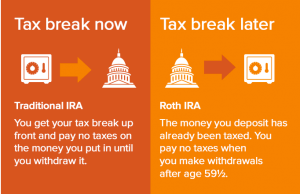
Lower Taxes on Highly Appreciated Employer Stock
Financial PlanningBy: Jude McDonough, CFP® AIF®
May 13, 2020
If you have a 401(k) with employer stock that has grown over the years, you may want to consider a tax strategy that can enable you to pay a lower tax rate on your gains in the employer stock. The more I explain, the more it may feel like a no brainer. However, it is the same as any other financial decision you make in that it has some tradeoffs and depends on your personal situation. We strongly encourage you to consult with a professional before taking any action.
The strategy is called Net Unrealized Appreciation (NUA) and while the general concept is fairly simple, the rules are very complex. If you have employer stock in your 401(k) that has significant capital gains, you can opt to pay capital gains taxes on the gains rather than ordinary income tax on the gains. Capital gains rates are significantly lower than income tax rates, which is why you may now be thinking this is a no brainer. Let’s look at an example:
You have a 401(k) with $750k in employer stock in it. Your cost basis on that stock is $100k and your total balance in your account is $1.4 million. In order to take advantage of NUA, you need to qualify by way of a triggering event and you would have to take a lump sum distribution as follows:
- The $650k non-employer stock balance would need to be taken either as a distribution to you or rolled over to a qualified retirement account.
- The $750k in employer stock would need to be taken in-kind to a non-qualified brokerage account.
- You would be responsible for taxes on the $100k cost basis, which would be added to your tax liability for the tax year in which you take the distribution.
- You would then have your employer stock in a brokerage account with a $650k long term capital gain subject to long term capital gains taxes on any sales of the stock.
As you can see, it is fairly simple and there are tradeoffs just as I mentioned there would be. In this case, the tradeoff is somewhat significant depending on your financial situation. The $100k distribution of cost basis will likely put you in a higher tax bracket and you will need to come up with the money to pay the taxes on it. You have to look at the tax cost and determine whether or not it is worth it to you to pay that now and take the employer stock out of the tax deferred account. Will you continue to hold the stock? Do you have the money to pay the taxes? Those are just two of many questions you should be considering.
I’m going to close with the general rules and encourage you to talk to us or someone you trust if you are considering this. The general rules are as follows:
- The employer stock MUST be distributed in-kind. You can’t sell it in the retirement plan and buy it back in a brokerage account.
- It must be part of a lump sum distribution. As illustrated in the example, the money that is not being transferred for NUA can be rolled over. No matter how you do it, the account MUST be closed out and distributed in the same tax year.
- The lump sum distribution must be made after a triggering event. The triggering events are death, disability, separation from service or reaching age 59 ½.
These are the general rules, but there are many other items for consideration. If you own highly appreciated company stock in your retirement plan, you should at least take the time to consider this option for your own personal situation.


